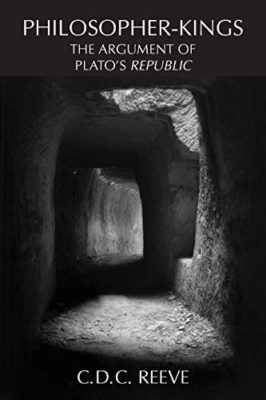Welcome to the first reading list of 2023! The monthly posts are back, and this one will feature a couple of philosophical works. And even a bonus movie.
So, without further ado, let’s get on to the first reading list post of 2023. And let me know what you’re reading in this new year.
Peter Adamson – Classical Philosophy
This is the first book in a collection from Adamson’s podcast History of Philosophy Without Any Gaps. In it, he writes short essays based on his podcasts on classical Western philosophy. He covers the pre-Socratics and on through Plato and Aristotle.
As one might expect, Adamson isn’t able to cover any of the material in the depth one would expect of a history of philosophy scholar. But, of course, that’s not his goal. Instead, he introduces the reader to the very basics of each philosopher and puts them into their historical context.
And he does a great job at all that. I think for most casual readers, the podcast itself would be a perfectly fine source. But even for someone who might be interested in taking the next steps and reading some of these philosophers, the book serves as an excellent resource. It’s a handy starting point that can serve to direct the reader to where to go. I expect much the same will be true of Adamson’s followup books.
I’ll keep reading.
C.D.C. Reeve – Philosopher-Kings
Reeve provides a thorough interpretation and reinterpretation of The Republic by Plato. The book probably needs no introduction to philosophers or philosophy majors. Most of us have read the book at least several times. I read it in 3 or 4 undergrad courses. And I taught the book about a half dozen times as a grad student TA and Visiting Professor.
So, yeah. I’ve read it.
Reeve’s interpretation is pretty wild and difficult to follow. But the big picture is that he reads it as a single, unified work. Unlike many, he doesn’t set out Books 1 and 10 as an aberration or parody of Sophists or side discussion. Instead, he sees the entire text as sets of parallel symbolism. He thinks it is central to Plato’s settled metaphysical views and that it marks a clear point of departure from the philosophical views and methods of Socrates.
Does it work? In most parts, it does. I don’t think all of it works – in particular, I think Reeve’s reclamation of Thrasymachus in Book 1 doesn’t really work and some of his parallels are a real stretch (e.g., calling the primitive polis of Book 2 a land of ‘money-lovers,’ which just doesn’t really work at all). But, overall, the book is insightful. It taught me a lot about the text of The Republic that I hadn’t previously picked up on.
It’s definitely an advanced book. But if you’ve read The Republic and thought about it, this could be a great book for you.
Gore Vidal – Burr
This is the (chronologically) first book in Vidal’s Narratives of Empire series. And through this book on Aaron Burr, Vidal tells a (mostly fictional) story about the first several decades of the United States.
Vidal tells the story through a (fictional) biographer of Burr. The biographer’s task is to use Burr’s life story to sabotage the impending presidency of Martin Van Buren. To do so, he holds a series of interviews with Burr where Burr tells all about his vice presidency and treason trial.
How much of the story is accurate? It’s hard to say. But whether accurate or not, Vidal tells a compelling story.
Bonus Movie: The Good Boss
As a bonus, I also watched the recent Spanish comedy film El Buen Patrón. It’s not quite on the same theme as my post on corporate books, in the sense that it’s not about the white-collar world of work. Rather, it’s about the CEO of a manufacturing company who uses business ideology, Lean, and traditional models of the paternalistic executive to run his company. But it works well enough for the theme here.
It’s an enjoyable movie. And who doesn’t love Javier Bardem?
